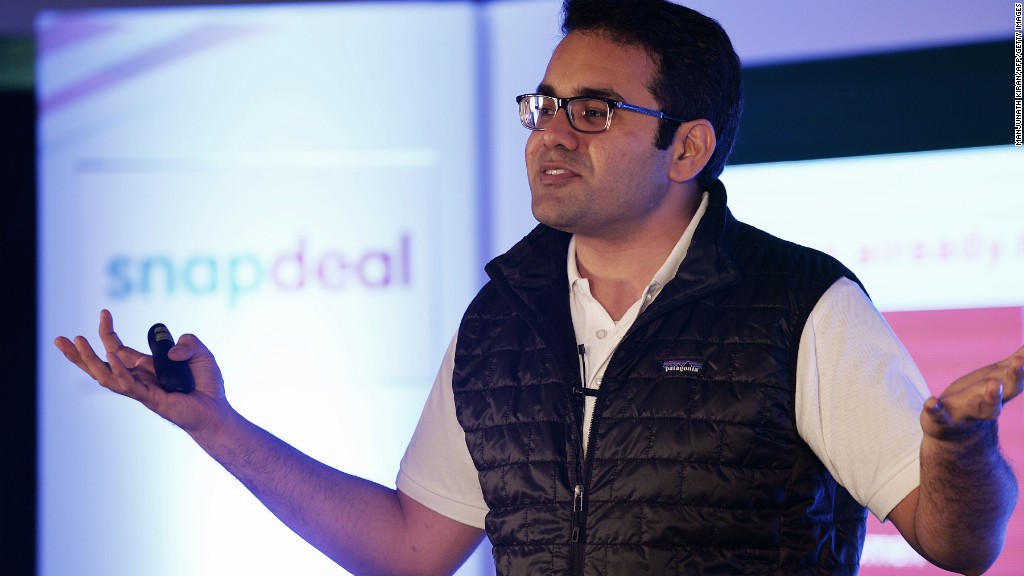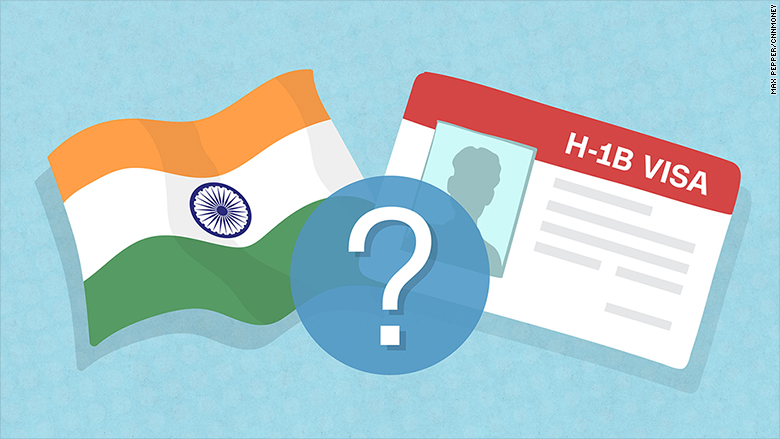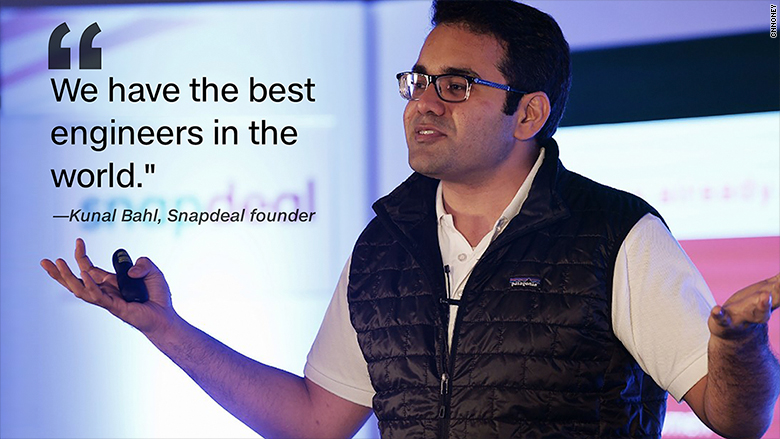
Kunal Bahl had a business degree from the University of Pennsylvania, a job with Microsoft (MSFT) in Seattle and a dream of moving to Silicon Valley to start his own company.
That was 2007. Then U.S. immigration officials rejected his application for an H-1B visa, putting an end to those dreams.
"If they want me here, I would love to be here because I can learn a lot," Bahl said in an interview with CNN in 2012, explaining his thinking at the time. "But if it's going to be that hard for me, then I'm better off just going back to India and starting a company."
India's tech industry has been rattled this week by reports that President Trump may make it harder for skilled workers to enter the U.S. It makes heavy use of H-1B visas to hire engineers to provide services to big U.S. firms.

For Bahl, the forced change of direction worked out well. Denied a career at Microsoft, he returned to India and launched Snapdeal with his friend Rohit Bansal in 2010.
Snapdeal is now one of India's top online retailers, valued at about $7 billion. It is backed by global players such as China's Alibaba (BABA) and Japan's Softbank (SFTBF), and competes with Amazon (AMZN) and local market leader Flipkart.
Related: Amazon has an India problem
"When we first started, we thought that if we did a hundred orders in a day, that would be a big, big step for us," the entrepreneur told CNNMoney. "Within a matter of a month or two, we were doing a hundred orders a minute."
Snapdeal has around 50 million users on its platform and over 300,000 vendors selling everything from shoes to TVs across 6,000 Indian cities and towns.
It branched out into digital payments two years ago when it bought Freecharge. That service is gaining millions of users after India suddenly banned 86% of its cash last November.

"We are extremely strong in the smaller towns and cities of India, which is where a significant chunk of the demand going forward is going to come from," Bahl said.
Much bigger rivals share his conviction. Bringing the south Asian nation's rural population of more than 900 million people online is a challenge Google and Facebook are trying to figure out. So is the Indian government.
Related: India plans to give free WiFi to over 1,000 villages
India will soon have more smartphone users than the U.S. and e-commerce is one of the country's fastest growing industries. Amazon has invested over $5 billion in the country since 2013.
"What is today a $15 billion market will become potentially a $300 billion market in the next ten years," Bahl estimated. "There's tremendous growth still ahead of us."
And the 33-year-old CEO is equally optimistic about the opportunities for young Indians in the country he returned to nearly a decade ago.
Related: India freaks out over U.S. plans to change high-skilled visas
"We have the best engineers in the world, we have a large English-speaking population, we have a large digitally connected population," he said.
"Many of our team members will start their own companies and team members of their companies will start their own companies," he says. "What our country needs right now is more entrepreneurs, not more policy."

